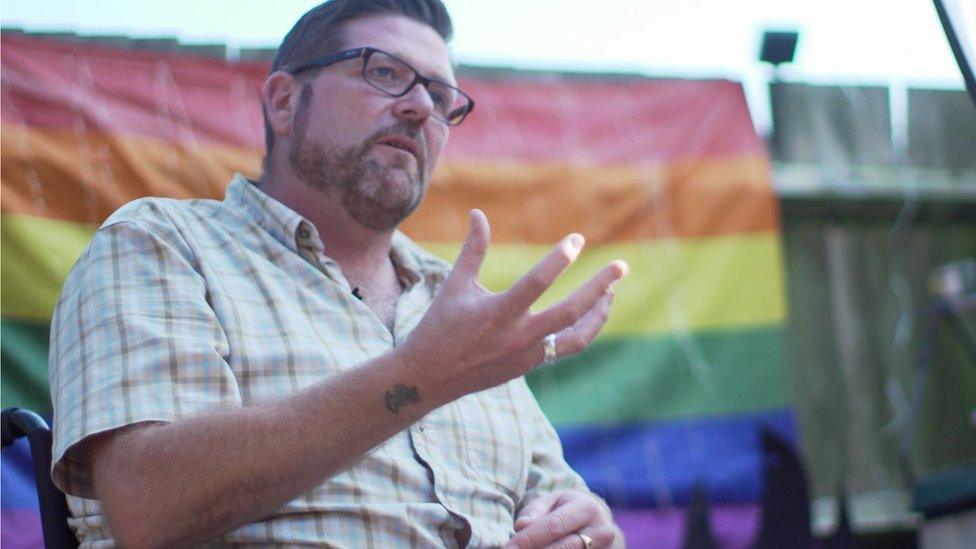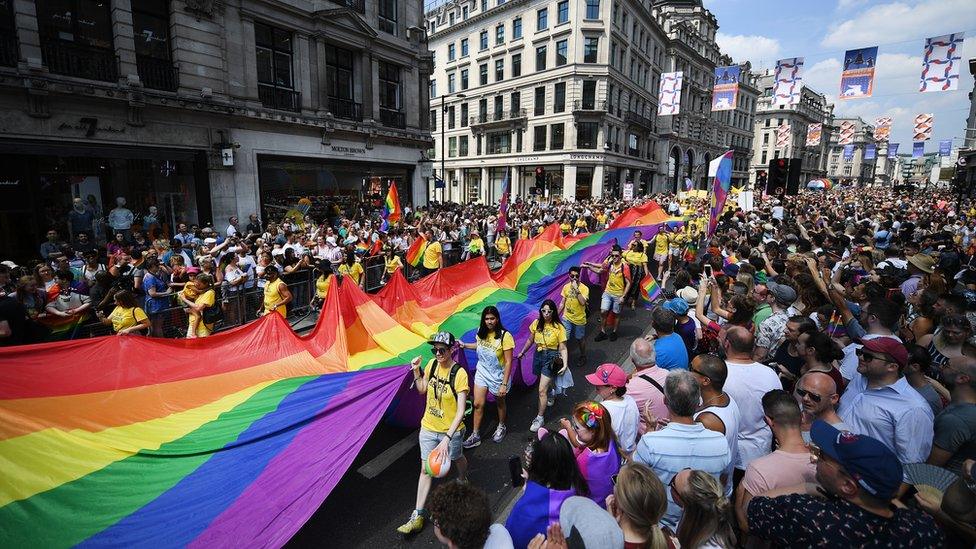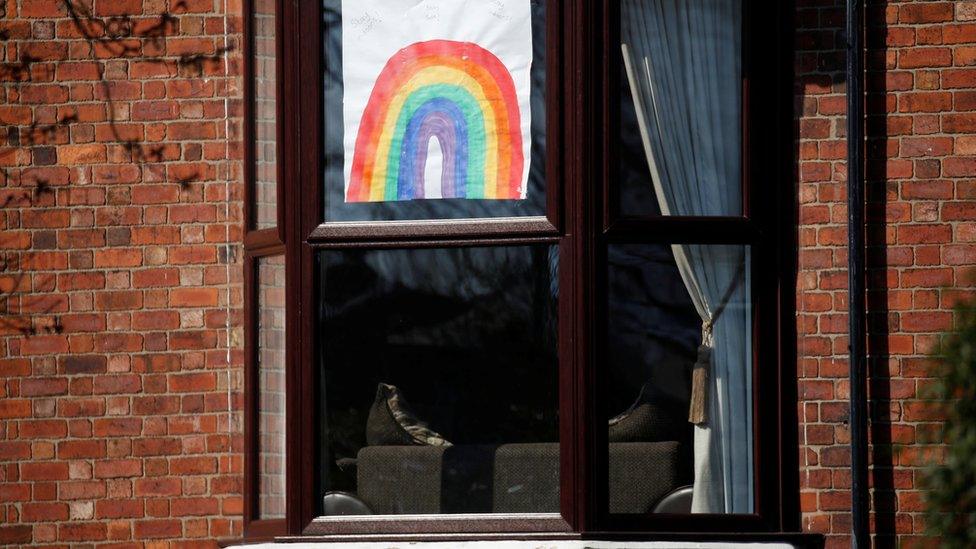'I thought I was going to die' in homophobic attack
- Published
"I shouldn't be scared to walk down the street"
Two years ago, 50-year-old Tommy Barwick was attacked after London's Pride parade. He was left requiring the use of a wheelchair.
"I heard shouting behind me that was homophobic. Then I was hit. I felt my back crack and I fell to the floor. They stamped on my back," said Tommy - and they swore at him as he lay on the ground and told him he "deserved it".
"The pain - it was so awful. I was in and out of consciousness. I thought I was going to die, I really did. I thought I was never going to see my daughter again," he said, recalling the traumatic experience.
This homophobic assault - an attack based on prejudice against LGBT people - was part of a surge in such cases over the past five years.
New figures obtained by the BBC from all 45 police forces in the UK reveal that the number of reported homophobic hate crime cases almost trebled - from 6,655 in 2014-15, the year same sex marriage became legal in England, to 18,465 in 2019-20.
In the past year, there has been a 20% rise in reports to police of homophobic hate crime, according to the data which was obtained through Freedom of Information requests.
Police forces said this increase could reflect a greater confidence in reporting such crimes.
But LGBT charities said they had seen a rise in people experiencing such hate crimes and this could be just the "tip of the iceberg".
'Financially ruined'

Tommy Barwick's attackers were never found
The attack has left Tommy in pain - and it meant losing his livelihood because he was no longer able to run the shop he owned.
"My life was taken from me. I can't play with my daughter like I used to. I don't sleep. I have flashbacks. I have nightmares. I'm financially ruined," he told the BBC.
But his attackers were never found. The police force dealing with his case has apologised for the way that his case was handled, and the BBC has seen the letter.
"I wanted to reiterate my apology for the lack of face-to-face contact with any officer after your attack. It is clear that the service you received left you feeling let down, and this is not acceptable," he was told by the police.
But Tommy doesn't think that's good enough.
"They've told me that they handled my case wrong, and that now they'll train their officers better. But that doesn't help me. I haven't got a lot of trust in them anymore."
A hate crime is a criminal offence that is motivated by "hostility or prejudice" towards someone because of factors such as their race or religion or their sexual orientation.
It means prosecutors can apply to the court to increase the offender's sentence.
Such cases of hate crimes based on sexual orientation seem to have been increasing in many areas.
In West Yorkshire, such crimes rose from 161 in 2014-15 to 1,093 in 2019-20
Merseyside cases rose from 65 to 678 in the same years
Essex from 97 to 533
London's Metropolitan Police saw reports rise from 1,549 to 3,013
Greater Manchester Police saw reports rise from 423 to 1,231
Hertfordshire police recorded 176 such crimes in 2018-19, which rose to 495 in 2019-2020
Northamptonshire police recorded 82 and 177 in same periods
Charlie Graham, a 21-year-old from Sunderland, says homophobic hate crime is just a part of life.
Charlie has been attacked several times over the past three years - and was left beaten and covered in blood after the most recent incident a few months ago.
"I did go downhill after the first two of three times. Like really downhill, to the point where I was in a hole and I didn't want to come out of it," Charlie said about the impacts of the attacks.
"Suicidal thoughts, drinking, not giving a care in the world."
As with Tommy's experience, Charlie's attackers were never found. The police looking into the case apologised.
Even after going through such horrific experiences, Charlie refuses to change any way of life, and said nobody else should have to either.
"I could come up with lots of examples where we are getting it right," said Deputy Chief Constable Julie Cooke, the lead for LGBT at the National Police Chiefs' Council.
"But I absolutely take seriously where we don't. And we need to make sure that we improve and learn from those times when we've not done it right," she said.
"It is hugely underreported. And so please do come forward. And if you're not getting the right response that you would expect, please make sure that you tell us about that."
But Nancy Kelley, chief executive of Stonewall, the LGBT charity, doesn't think the rise is just down to better reporting.
"We are definitely seeing a real increase in people reaching out for help across all of the LGBT organisations," she said.
"So we are very concerned that this is a real rise in people who are being attacked because of who they are and who they love.
"We know that 80% of LGBT people don't report hate crimes. So this is really just the tip of the iceberg.
"One of the key steps to changing this is making it visible, and by standing up and saying that we shouldn't have to experience this kind of hate and abuse."
Follow Ben Hunte on Twitter , externaland Instagram, external.
- Published10 January 2020

- Published17 May 2020
